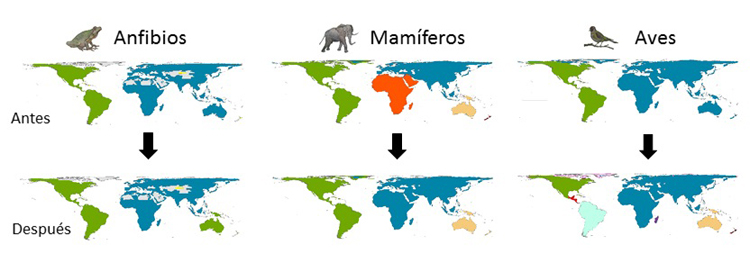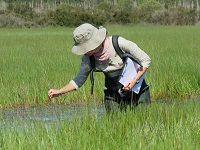Zoogeographical regions, or zooregions, are areas of the Earth defined by species pools that reflect ecological, historical and evolutionary processes acting over millions of years. Consequently, researchers have assumed that zooregions are robust and unlikely to change on a human timescale. However, the increasing number of human mediated introductions and extinctions can challenge this assumption. By delineating zooregions with a network?based algorithm, this study, focused on the bioregions defined by amphibians, mammals, and birds, shows that introductions and extinctions are altering the zooregions known today. Introductions are homogenising the Eurasian and African mammal zooregions and also triggering less intuitive effects in birds and amphibians, such as dividing and redefining zooregions representing the Old and New World. Furthermore, these Old and New World amphibian zooregions are no longer detected when considering introductions plus extinctions of the most threatened species. Unfortunately, these changes can be increased if the currently threatened species become extinct. Results suggest that the human being is altering historical, ecological, and evolutionary signals that informed us of the processes that have shaped life on Earth. These findings highlight the profound and far?reaching impact of human activity and call for identifying and protecting the uniqueness of biotic assemblages. informacion[at]ebd.csic.es: Bernardo-Madrid et al (2019) Human activity is altering the world's zoogeographical regions. Ecol Lett https://doi.org/10.1111/ele.13321



 La Fundación Jaime González-Gordon ofrece cuatro becas para el desarrollo de Trabajos de Fin de Máster sobre Doñana
La Fundación Jaime González-Gordon ofrece cuatro becas para el desarrollo de Trabajos de Fin de Máster sobre Doñana
